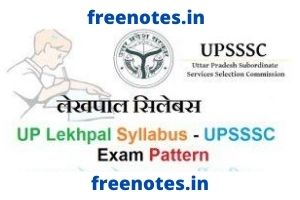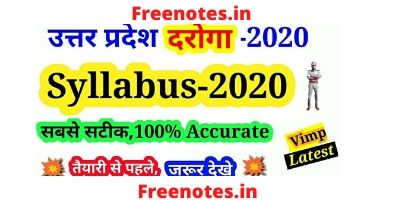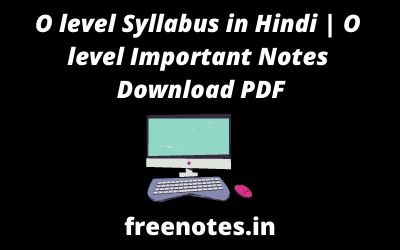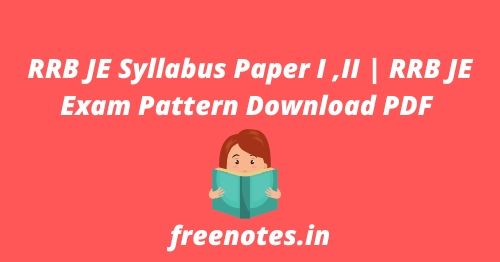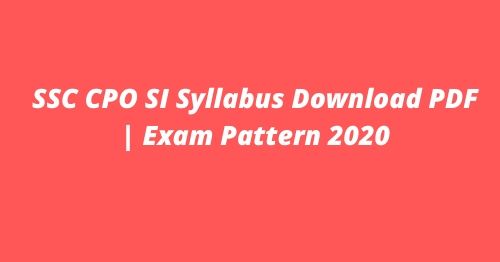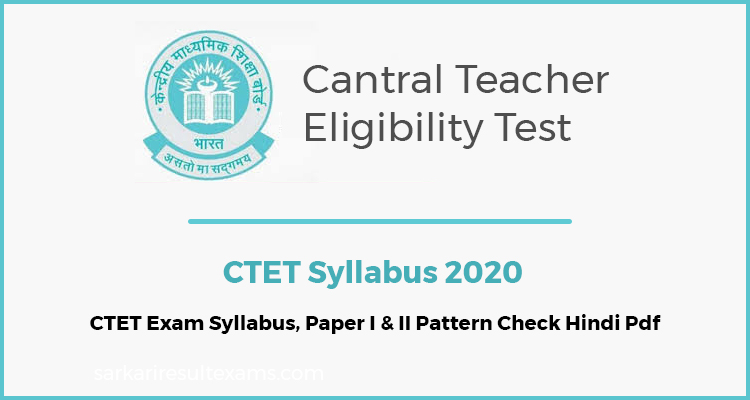UPSC Mains Syllabus:-The Main examination of UPSC is designed to test a candidate’s academic expertise and the ability to present his/her knowledge in a consistent manner. The UPSC Mains exam intends to assess the overall intellectual traits and understanding of the concept by the candidates. The Civil Services Main examination is designed to test the academic talent of the aspirant, also his/her ability to present his/ her knowledge in a clear and coherent manner.
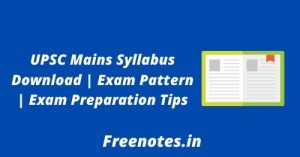
UPSC Mains Syllabus Download Exam Pattern Exam Preparation Tips
UPSC Mains Syllabus
Language Papers (Indian language and English)
Although both these papers are only qualifying in nature, candidates should not be complacent as if they fail to score below 25% in either of them, their remaining answer sheets won’t even be evaluated. Both the papers follow a similar pattern of questions as given below.
- One essay question for 100 marks – candidates have to select one out of a few given topics
- Reading comprehension and related five-six questions for a total of 60 marks
- Precis writing for 60 marks – the answer sheet will have a separate grid structure where this has to be written
- Translation from English to chosen language for 20 marks
- Translation from chosen language to English for 20 marks
- Grammar and basic language usage such as synonyms, sentence correction etc. for a total of 40 marks
Essay
The UPSC mains syllabus does not have any prescribed syllabus for the essay paper as such. As per the UPSC, “Candidates are expected to keep closely to the subject of the essay to arrange their ideas in an orderly fashion, and to write concisely. Credit will be given for effective and exact expression.”
Candidates are required to write two essays from a list of given topics for a combined total of 250 marks.
GS Paper 1
- Modern Indian History
- Significant events, issues, personalities during the middle of the eighteenth century (1750s) until the present.
- Different stages and important contributors and contributions from various parts of the country in ‘The Freedom Struggle’.
- Post-independence consolidation and reorganisation within the country.
- History of the world
- Events, forms and effect on society since the 18th century (world wars, industrial revolution, colonisation, redrawal of national boundaries, decolonisation, political philosophies like communism, capitalism, socialism, etc.)
- Society
- Indian society and diversity – Salient aspects.
- Role of women and women’s organisations, population and associated issues, poverty and developmental issues, urbanisation, their problems and remedies.
- Social empowerment, communalism, regionalism & secularism.
- Effects of globalisation on Indian society.
- Geography
- Distribution of key natural resources across the world including South Asia and the Indian sub-continent; factors responsible for the location of primary, secondary, and tertiary sector industries in various parts of the world including India.
- Important Geophysical phenomena such as earthquakes, Tsunami, Volcanic activity, cyclone etc.
- Geographical features and their location, changes in critical geographical features (including water-bodies and polar ice caps) and, in flora and fauna and the effects of such changes.
- Salient features of world’s physical geography.
GS Paper II
- Indian Constitution
- historical underpinnings,
- evolution, features
- amendments, significant provisions
- basic structure doctrine
- Comparison of the Indian constitutional scheme with that of other countries
- Functions and responsibilities of the Union and the States, issues and challenges pertaining to the federal structure, devolution of powers and finances up to local levels and challenges therein.
- Separation of powers between various organs, dispute redressal mechanisms and institutions
- Structure, organisation and functioning of the Executive and the Judiciary
- Parliament and State Legislatures
- structure, functioning
- conduct of business
- powers & privileges and issues arising out of these
- Ministries and Departments of the Government; pressure groups and formal/informal associations and their role in the Polity.
- Salient features of the Representation of People’s Act
- Appointment to various Constitutional posts, powers, functions and responsibilities of various Constitutional Bodies.
- Statutory, regulatory and various quasi-judicial bodies.
- Government policies and interventions aimed at development in various sectors and issues arising out of their design and implementation.
- Development processes and the development industry – the role of NGOs, SHGs, various groups and associations, institutional and other stakeholders.
- Welfare schemes for vulnerable sections of the population by the Centre and the States and the performance of these schemes; mechanisms, laws, institutions and Bodies constituted for the protection and betterment of these vulnerable sections.
- Issues relating to development and management of Social Sector/Services relating to Health, Education, Human Resources
- Issues relating to poverty and hunger
- Important aspects of governance, transparency and accountability, e-governance- applications, models, successes, limitations, and potential; citizens charters, transparency & accountability and institutional and other measures
- Role of civil services in a democracy
- International Relations
- India and its neighborhood – International relations
- Bilateral, regional and global groupings and agreements involving India and/or affecting the Indian interests
- Effect of policies and politics of developed and developing countries on India’s interests, Indian diaspora.
- Important International institutions, agencies, their structure and mandates
GS Paper III
- Economy
- Indian Economy and issues relating to planning, mobilisation of resources, growth, development and employment.
- Government Budgeting.
- Inclusive growth and associated issues/challenges
- Effects of liberalisation on the economy (post 1991 changes), changes in industrial policy and their effects on industrial growth.
- Infrastructure – Energy, Ports, Roads, Airports, Railways etc.
- Investment models (PPP etc)
- Agriculture
- Major cropping patterns in various parts of the country, different types of irrigation and irrigation systems storage, transport and marketing of agricultural produce and issues and related constraints; e-technology in the aid of farmers
- Economics of animal rearing.
- Food processing and related industries in India – scope and significance, location, upstream and downstream requirements, supply chain management.
- Issues related to direct and indirect farm subsidies and minimum support prices; Public Distribution System objectives, functioning, limitations, revamping; issues of buffer stocks and food security; Technology missions
- Land reforms in India.
- Science and Technology
- Recent developments and their applications and effects in everyday life
- Achievements of Indians in science & technology.
- Indigenisation of technology and developing new technology.
- General awareness in the fields of IT, Space, Computers, Robotics, Nanotechnology, bio-technology
- Issues relating to intellectual property rights
- Environment
- Conservation,
- Environmental pollution and degradation
- Environmental impact assessment
- Disaster Management (Laws, Acts etc.)
- Security
- Challenges to internal security (external state and non-state actors)
- Linkages between development and spread of extremism
- Challenges to internal security through communication networks, role of media and social networking sites in internal security challenges,
- Basics of cyber security; money-laundering and its prevention
- Security challenges and their management in border areas; linkages of organised crime with terrorism
GS Paper IV
This Ethics paper in the UPSC mains syllabus includes questions to check the candidates’ attitude and approach to issues relating to integrity and probity in public life and his/her problem-solving approach to various societal issues. Questions may utilise the case study approach to determine these aspects and the exam covers area as mentioned in the syllabus given below.
- Ethics and Human Interface
- Essence of Ethics, Determinants and Consequences of Ethics in Human Interaction
- Dimensions of Ethics
- Ethics in private and public relationships
- Human Values – lessons from the lives and teachings of great leaders, reformers and administrators
- Role of family, society and educational institutions in inculcating moral and ethical values
- Attitude
- Content, structure and function of attitude
- Influence of attitude in thought and behaviour
- Relation of attitude to thought and behaviour
- Moral and Political attitudes
- Social influence and persuasion
- Aptitude
- Aptitude and foundational values of Civil Service
- Integrity
- Impartiality and non-partisanship
- Objectivity
- Dedication to public service
- Empathy, tolerance and compassion towards the weaker sections of the society
- Emotional Intelligence
- Concepts of emotional intelligence
- Utility and application of emotional intelligence in administration and governance
- Contributions of Thinkers and Philosophers
- Contributions of moral thinkers and philosophers from India and the world to the concepts of morality
- Public/Civil Service Values and Ethics in Public Administration
- Status and associated problems
- Ethical concerns and dilemmas in government and private institutions
- Laws, rules, regulations and conscience as sources of ethical guidance
- Accountability and ethical governance
- Strengthening of ethical and moral values in governance
- Ethical Issues in international relations and funding
- Corporate governance
- Probity in Governance
- Concept of public service
- The philosophical basis of governance and probity
- Information sharing and transparency in government
- Right to Information
- Codes of ethics
- Codes of Conduct
- Citizen’s Charters
- Work culture
- Quality of service delivery
- Utilization of public funds
- Challenges of corruption
Optional Subject (Two Papers)
A candidate has to choose one optional subject (out of a total of 48 options). There will be two papers for a combined total of 500 marks. Selecting the best optional subject for UPSC mains should be a careful and considered decision. Refer to the link given above to understand which optional subject will be the best for you.
UPSC Mains Exam 2020
IAS Main Exam has four general studies papers, two compulsory language papers, one essay paper, and two papers of Optional subject. It is a descriptive type of exam and has a totally enhanced version of the IAS Prelims exam.
UPSC Exam 2020 Syllabus
it can be said that the IAS Main Syllabus is a mammoth expansion of the IAS Prelims Syllabus.
| Sl. No. | Name of Paper | Syllabus | Marks |
| 1 | Essay Paper | Any Topic/Topics (Current issues) | 250 |
| 2 | GS Paper I | Indian Heritage and Culture, Indian History, World History, World Geography, Indian Society, Important Geo-physical phenomena | 250 |
| 3 | GS Paper II | Governance, Indian Constitution, Polity, Social Justice and International relations, Welfare Schemes, Statutory, regulatory and quasi-judicial bodies, Role of civil services in a democracy, India’s relation with neighbour countries, International institutions, | 250 |
| 4 | GS Paper III | Technology, Economic Development, Bio diversity, Environment, Indian Economy and its various sectorsGovernment BudgetingLand ReformsInclusive GrowthSecurity and Disaster Management | 250 |
| 5 | GS Paper IV | Ethics and Human Interface Attitude Aptitude Emotional Intelligence Emotional Intelligence Public/Civil service value Probity in Governance Case study on above topics | 250 |
| 6 | Indian Language Paper | (i) Comprehension of given passages (ii) Précis Writing (iii) Usage and Vocabulary (iv) Short Essays (v) Translation from English to the Indian language and vice-versa | 300 |
| 7 | English | Comprehension of given passages Précis Writing Usage and Vocabulary Short Essays | 300 |
| 8 | Optional Paper I | As opted by Candidate | 250 |
| 9 | Optional Paper II | As opted by Candidate | 250 |
List of Optional Subject in IAS Mains Exam 2020
The List of Optional Subjects is as follows:
(i) Agriculture
(ii) Animal Husbandry and Veterinary Science
(iii) Anthropology
(iv) Botany
(v) Chemistry
(vi) Civil Engineering
(vii) Commerce and Accountancy
(viii) Economics
(ix) Electrical Engineering
(x) Geography
(xi) Geology
(xii) History
(xiii) Law
(xiv) Management
(xv) Mathematics
(xvi) Mechanical Engineering
(xvii) Medical Science
(xviii) Philosophy
(xix) Physics
(xx) Political Science and International Relations
(xxi) Psychology
(xxii) Public Administration
(xxiii) Sociology
(xxiv) Statistics
(xxv) Zoology
The literature of any one of the languages such as Assamese, Bengali, Bodo, Dogri, Gujarati, Hindi, Kannada, Kashmiri, Konkani, Maithili, Malayalam, Marathi, Oriya, Punjabi, Sanskrit, Santhali, Sindhi, Tamil, Telugu, Urdu, English.
UPSC Mains Exam Pattern
Before going to the Syllabus, candidates are advised to have a look on the UPSC Mains Exam Pattern
| UPSC IAS Mains Exam Pattern | ||||
|---|---|---|---|---|
| Paper | Subject | Duration | Maximum Marks | Nature |
| Paper A | Any Indian language | 3 Hours | 300 (25% For Qualifying) | Qualifying Only |
| Paper B | English Paper | 3 Hours | 300 (25% for Qualifying) | Qualifying Only |
| Paper I | Essay | 3 Hours | 250 | Scoring |
| Paper II | General Studies I | 3 Hours | 250 | Scoring |
| Paper III | General Studies II | 3 Hours | 250 | Scoring |
| Paper IV | General Studies III | 3 Hours | 250 | Scoring |
| Paper V | General Studies IV | 3 Hours | 250 | Scoring |
| Paper VI | Optional I | 3 Hours | 250 | Scoring |
| Paper VII | Optional II | 3 Hours | 250 | Scoring |
UPSC Mains Syllabus PDF Download
UPSC Mains Exam Preparation Tips
General Studies Paper I
- The syllabus of the GS paper 1 consists- Indian Heritage and Culture, History and Geography of the World and Society. These have further been divided into 12 topics and 40 subtopics.
- Once you acquainted with the syllabus you should immediately start with the basics, reading NCERTs and NIOS material for GS Paper has proven to be beneficial for many candidates especially for the Indian Heritage, Culture and History part, one can download these materials from the following link
- The most appropriate way to approach Paper I of the GS mains Paper is to understand the topic more broadly. e.g. Why Gupta Age is considered a golden era and why Magadha was the most powerful Mahajanpada of that time.
- In the Art and Culture portion, questions asked by UPSC nowadays are more analytical which requires both the factual content and good analysis to answer the why and how. You can answer such questions well only when you understand the historical background in which such art was produced. This is why you must read NCERT XI Ancient India for it gives you that historical context.
- For the Indian Society portion of the syllabus, Class 12 NCERT book on Indian Society is more than enough, a candidate can also refer to Ram Ahuja’s Indian Society for an in-depth understanding of the topics.
- For Geography part, reading and making notes out of NCERTs is a must thing to do along with Goh Cheng Leong’s Physical Geography, as discussed above the question in this section also come from an analytical and conceptual perspective, for instance, Impact of El-Nino on Indian Monsoon, conditions for a cyclone to develop, how climate change impacts agricultural activities so on. A candidate should not only read these topics but also should make notes in pointers covering all the angles related to a topic which can be asked in an examination, making notes in pointers would also help him to remember easily.
- Following current affairs and making notes also forms an inevitable part of our preparation as one can always expect direct and indirect questions on the topics contained in the syllabus.
General Studies Paper-II
- The Syllabus includes Governance, Constitution, Polity, Social Justice and International relations.
- Looking at the trend in the last five years of paper II of GS, you can easily understand that this paper is not about static portion anymore; a majority of questions is from current affairs and even that question that looks like of static one is linked to current events of recent times.
- Let’s understand this with an example; suppose a question is being asked about the power tussle between Lt Governor and CM of Delhi. So here you need to highlight the problem at present but at the same time, you have to state the significance of the post of Lt Governor post and CM briefly.
- For Basics on Polity and Governance, NCERTs are the best source anytime, along with Laxmikanths’s Polity. DD Basu’s “Introduction To The Constitution Of India” has also been found helpful to many toppers
- Other Sources: The 2nd Administrative Reforms Commission’s report titled – Organizational Structure Of Government of India (13th Report) and Chahal Magazine
- The Social justice part should mainly be covered from current affairs from various sources such as PIB, The Hindu newspaper and Indian express, etc
- International relations is all about current events .so, you have to prepare it from a Newspaper and any standard magazine, whatever suits you. The Chahal’s Monthly magazine also covers all the relevant topics, here is the link below:
General Studies Paper III
- The Syllabus includes Technology, Economic Development, Biodiversity, Environment, Security and Disaster Management.
- Questions from Paper III are asked majorly from current affairs and if a candidate is actively following newspapers and making notes he can solve the paper easily provided his basic knowledge of each topic is clear. Therefore, the focus should be on clearing basics first by reading NCERTs and some standard reference books, the sources to prepare for the GS paper 3 are listed below:
- Questions from science and technology general in nature and mostly contain the application part of many latest technologies and its impact on society and many other questions which are from general science and directly drawn from current affairs. Every year only 3-4 questions are asked from S&T and from some of the most important topics such as Biotechnology, Space & Technologies, Defence Technologies, Public Health, Nuclear Technologies: Energy, Cyber Security: Discussed in Internal Security, ICT: Latest Technologies: AI, CPS, AR and VR, Quantum Computing, 5G, etc. Any information related to the above topics becomes important.
- For the Indian Economy, one can refer to Chahal Academy’s Monthly magazine, current affairs and some standard books such as Indian Economy by Ramesh Singh. Economic survey and Indian Budget released give out crucial information on the economy and hence are important sources.
- In Internal Security and Disaster management, most of the questions are from always asked from few selected topics such as Terrorism- International and domestic, Left-wing extremism/Naxalism/Maoism, North East Insurgency, Border Management, Coastal Security, Organized Crimes, Cyber-crime and cyber-security, Regionalism and inter-state disputes, etc. Topic-wise preparation on the above-mentioned topics is sufficient enough for this section, keeping the current affairs in mind.
General Studies Paper IV
The syllabus includes: Ethics, Integrity, and Aptitude
The questions asked in GS Paper IV are mainly to test candidates’ attitudes and approach towards problem-solving, on issues relating to integrity and probity in public life. The question paper consists of questions on theory and case studies to understand a candidate’s approach to determine these aspects. The Focus areas: ethics, public service/ values, and integrity, attitude, aptitude for the civil services, emotional intelligence, the contribution of thinkers, honesty in public life, etc.
Paper IV is 25 percent of basic book knowledge and 75 percent of your understanding of the situation based on the basic books you have read and clarity of syllabus you have.
For the first portion of this paper, you have to read some moral thinkers and their contribution and when you will solve case study, you have to utilize that information for not only writing the good answer of that case study but you have to also develop your knowledge and understanding of values.
The most appropriate way to develop for this paper is to first understand each terminology given in the syllabus e.g. Empathy, sympathy and the difference between Attitude and Aptitude., etc.
Essay Paper:
- Essay paper is not about your knowledge and disseminating that information on your answer. It is about the representation of your approach to the skill of pinning down your information in sequence manner supported by some facts and figures.
- Apart from facts and figures the art of representation and art of writing plays an important role in fetching more marks.
- You can develop this art of representation and writing a good answer only by practicing it. so, make a good habit of writing one essay in a fortnight.
Optional Paper:
- The optional papers carry a total weightage of 500 marks in the mains examination and to some extent most important papers because every year the GS papers but optional subjects are different according to the candidates’ preferences and it is believed that more good you are in your optional subject the more is your chances to clear the examination. Selecting the right optional is a major dilemma form many UPSC aspirants.
- Before choosing an optional a candidate should understand questions in the optional papers are of graduate-level and solving them requires in-depth knowledge and study of those subjects and hence they would consume an enormous amount of a student time of his preparation. Therefore, a candidate should choose that subject as optional which he finds interesting to read and can sit in for hours without getting bored.
- Shortlisting some of the subjects, going through its syllabus and last 5 years question paper to understand the dynamics of question asking pattern must be done before jumping on to the most important decision of choosing an optional.
Compulsory Paper:
As the compulsory paper is qualifying in nature so before the examination just practice some of the things like grammar and basic things like ways of answering and approach of writing. These little things will shell you through the mains examination.
USE OF DIAGRAMS AND FLOWCHARTS IN ANSWER WRITING
The use of flowcharts and diagrams enhances the quality of an answer, helps is explaining more in less time and is also an effective way to summarize the information contained in an answer.
Use easy to understand mind maps, diagrams, and flow charts are the things which will provide you an edge over other candidates as your answer will look more catchy and soothing to the examiner.
Many times when you run out of time in the examination hall and you still have a few questions to attempt you can move ahead by writing just a diagram of flow chart so that an examiner may have an insight that you know the question.
Some Frequently Asked Questions About UPSC Mains Examination:
Can a candidate write different papers of Civil Service (Main) Examination in different languages?
No, Either in English or in any one of the Eighth Schedule languages except the Qualifying Language papers Paper-A and Paper-B, which they have indicated at the time of filling up of their online application form for the Civil Service (Preliminary) Examination.
What are the Cut-off Marks for the compulsory language Papers?
The minimum qualifying standards in each of the two Qualifying Papers i.e. English and Indian Languages is indicated in the Examination Rules, which is at present 25%.
Should I write an answer in Bullet Point or Paragraph?
- You can write in a paragraph as well, but the bullet point will be more appropriate due to: Bullet point reveals the work in a more natural way to the examiner and he may not have to find the eye-catching phrases in your copy
- The bullet point is to the point in nature as compared to the paragraph approach of writing the answer.
- Bullet points are easy to cover and you can cover the whole paper within the time limit.
Should I attempt all 20 questions or write 17 to 18 good answers?
- Your chance of success in mains examination dependence upon the number of the question you will attempt, remembers that. So, your priority should be to attempt all questions, even if you know nothing about a particular question.
- As the saying goes “It is better to have something than nothing”. So, stick with this mantra and write all the answers, you will get something for that answer. But, you should remember that the quality of the answer should not be lowered to complete all answers.
Should I use Quotes in answer writing?
- Quotes give your answer a dynamic view; eye-catching phrases are always a good prospect for getting good marks in mains examination.
- Too many unnecessary quotes can backfire as well so, use quotes but use it smartly.
Things to avoid in answer writing
- Reflecting a biased answer for the party:One of the most important things you should avoid is excessive criticism of government policies and also criticizing the person and its work.You should also refrain from writing the answer in a biased manner, as you are preparing for an administrative post that has to work behind the curtain. SO, your vested interest should not hamper the working for people and making chaos in administrative functioning.
- Altering the quotes:While quoting in mains answer writing don’t quote in an altered manner. It means if know exactly the exact quotation then only you should use it, otherwise, these wrong quotes reflect a bad impression about a candidate. e.g. “The Earth has enough for everyone’s need, but not enough for everyone’s greed.”So, if you alter this quote and write like the Earth can serve everyone’s need but not everyone’s greed. These small mistakes are very drastic in marks marking schemes of things.
- STRATEGY for handling the IAS-UPSC MAINS EXAM
While preparing for GS Mains, you will be also preparing for History, Geography, Public Administration, Political Science, Sociology, etc. It will help you in deciding your interest in a particular optional subject properly.
Rather than selecting an optional without knowing other subjects or without knowing your writing and presentation styles and thinking patterns, it is better to delay this decision. It will prove a more informed and rational decision afterward.
Preparations for the Civil Services Mains Exam should start along with those of the Preliminary exam. This is because there is much common ground for study, and there is little time for the mains exam if one waits for the results of the Preliminaries. It is a long haul and preparations should be done with persistence, over nine months to a year.
Reading List
As mentioned in each of our section on paper wise strategy the NCERT are the best source of study to clear your basic concepts. Take up the text-books for classes IX, X, XI, and XII. However, just reading these books will not serve the purpose. What is essential is that the person taking up self-study must pick up past question papers and write down the answers to questions asked therein. Practice in writing is what is required to attempt the paper. Many students make the mistake of studying for hours but have no practice in writing down the answers, which costs heavily during the exam. The skill required is that of organizing the arguments and making a coherent answer from the diverse material. One more thing that must be kept in mind is that the answers must be a little different from others and must have some extra bit that is missed out by others. This is not difficult if one has understood the issue in depth.
One important aspect of the Civil Services Mains Exam is that the questions do not ask for more information as a reply, but seek analysis backed with arguments from the candidates. Usually, one gets the impression that one knows everything but thoughts do not flow out naturally as one puts pen to paper. Hence, writing down the answers is an important aspect of the preparation. Another thing is that the candidate must carefully read the questions to make out what the examiner is asking. Having done that, it is important to organize one’s thoughts before writing and the sequence of the answer should be from the most important/potent aspect to less important aspects.
If you do not have someone to show your answers, keep them away and after a gap of some time, read them again. You will discover many mistakes, which earlier you could not. Analyze the answers to improve them. This exercise of re-analysis of answers improves the ability to be precise. One of the important requirements of the Mains exam is that the answers should be crisp and to-the-point.
List of IAS Topper recommended books for Mains (Paperwise)
GS Paper 1
Indian Heritage and Culture
- The Wonder That Was India A.L. Bhasham
- Indian Art and Culture Nitin Singhania
India and World History
- India’s Ancient Past R.S. Sharma
- History Of Modern India Bipan Chandra
- India’s Struggle For Independence Bipan Chandra
Geography of the World and Society
- Geography of India Majid Husain (Geography)
- Oxford School Atlas Oxford (Geography)
- Certificate Physical and Human Geography Goh Cheng Leong (Geography)
GS Paper 2
- Indian Constitution at Work (NCERT)
- Indian Polity by Laxmikanth
- Introduction to the Constitution of India by D.D. Basu
- Governance in India by Laxmikanth
- India Year Book
- Contemporary World Politics (NCERT)
GS Paper 3
- Economic Survey
- Science and Technology in India TMH
- The Environment for Civil Services prelims and Mains Khuller
- India Year Book
- ARC Report on Disaster Management
- Indian Economy by Uma Kapila
GS Paper 4
- Lexicon for Ethics, Integrity, and Aptitude ( Ethics GS4)
- IAS Mains General Studies Ethics ( Arihant Manual GS4)
You May Like This:-
जरुर पढ़ें :- आपको किसी भी प्रकार का सवाल है या ebook की आपको आवश्यकता है तो आप निचे comment कर सकते है. आपको किसी परीक्षा की जानकारी चाहिए या किसी भी प्रकार का हेल्प चाहिए तो आप comment कर सकते है. हमारा post अगर आपको पसंद आया हो तो अपने दोस्तों के साथ share करे और उनकी सहायता करे.
Disclaimer :- Freenotes.in does not claim this book, neither made nor examined. We simply giving the connection effectively accessible on web. In the event that any way it abuses the law or has any issues then sympathetically mail us.
